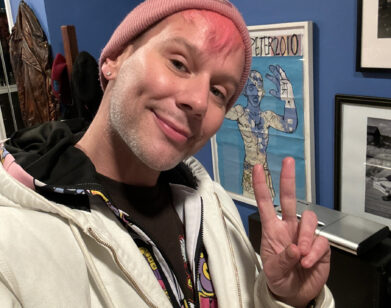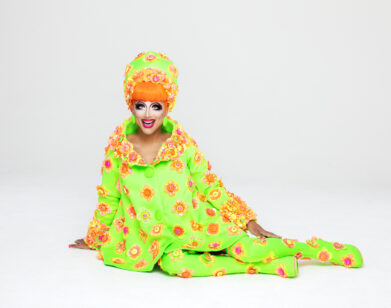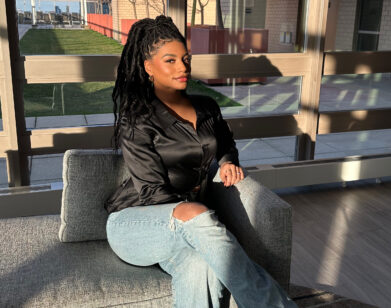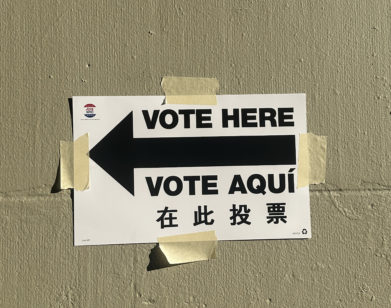Ask A Sane Person: Coleman Hughes Is Not Panicking At All
Over the past couple of years, Coleman Hughes has become one of the most compelling and promising voices on the political landscape. A senior at Columbia University majoring in philosophy, the 24-year-old writer has spoken out deftly on matters of race and justice. He is the host of a podcast called Conversations with Coleman.
———
INTERVIEW: Where are you and how long have you been isolating?
COLEMAN HUGHES: I’m in New York City and I’ve been sheltering-in-place for almost two months.
INTERVIEW: What has this pandemic confirmed or reinforced about your view of society?
HUGHES: By default, when faced with the choice between acting in the common interest and acting in their own interests, people will generally do the latter.
INTERVIEW: What has this pandemic altered about your view of society?
HUGHES: Not much.
INTERVIEW: What is the worst-case scenario for the future?
HUGHES: The virus continues to spread, re-infecting people many times, and we never create a vaccine. As a result, the global fdespeconomy collapses, permanently lowering our capacity to deal with future health crises.
INTERVIEW: What good can come out of this lockdown? Are there any reasons to hope?
HUGHES: COVID-19 is not nearly as deadly as viruses can be. For one thing, it spares children entirely. In a sense, this might be a necessary dress rehearsal for a much more deadly pandemic. If and when the next one hits, we might be thankful that COVID-19 prepared us for it.
INTERVIEW: Do you predict an outcome of more socialism or more authoritarianism?
HUGHES: Though the shelter-in-place order will normalize the idea of the government telling us to stay home, I doubt that it will lead to a general upswing in authoritarianism. If anything, it will highlight how exceptional the circumstances must be in order for governments to exercise such power. As for socialism, I don’t know. A prolonged public health crisis might help the case for universal healthcare. On the other hand, the bureaucratic incompetence of the CDC, FDA, and WHO might lower trust in state-run health initiatives.
INTERVIEW: How will world governments be remembered for their responses to the pandemic?
HUGHES: The nations that were hit hard by the earlier SARS pandemic will be remembered for their stellar response. The nations that were not hit by SARS will be remembered for having been unprepared. China will be remembered as either the central villain or the global scapegoat.
INTERVIEW: What has been your daily routine during this time?
HUGHES: I have no daily routine.
INTERVIEW: Describe the current state of your hair?
HUGHES: Donald Glover afro.
INTERVIEW: On a scale of 1 to 10, what level is your level of panic about the current state of the world?
HUGHES: I’m not panicking at all. Things are not looking great, but the time for total despair has not yet arrived.
INTERVIEW: What is your ultimate novel, film, and album for self-isolation?
HUGHES: I usually don’t like novels, but I have enjoyed an obscure book by the French Surrealist René Daumal called Mount Analogue. I’ve been watching The Wire, Naruto: Shippuden, Westworld, and Dave, and I’ve been listening to Drake’s new album, Dark Lane Demo Tapes.
INTERVIEW: In which thinker have you taken comfort of late and why?
HUGHES: I’ve been reading Tocqueville’s Democracy in America. Flaws notwithstanding, Tocqueville was one of the deepest thinkers of his time.
INTERVIEW: If 2020 were a song, which song would it be?
HUGHES: Anything off of Earl Sweatshirt’s album, I Don’t Like Shit, I Don’t Go Outside.
INTERVIEW: Where did we go wrong? Like, what was the exact moment?
HUGHES: Probably when we switched from hunting and gathering to farming.
INTERVIEW: Which (admittedly totally unqualified) celebrity would you trust with the planet’s future?
HUGHES: Probably Bill Gates.
INTERVIEW: If you could stop time at one particular moment in your life, which moment would it be?
HUGHES: If I’m only getting one time-stop, I’d prefer to save it until after I have kids. I assume I’ll want to relive those moments more than any moments I’ve lived so far.
INTERVIEW: What’s one skill we should all learn while in quarantine?
HUGHES: Mindfulness meditation. It lets you hone the ability to feel perfectly at peace for no reason at all.
INTERVIEW: State vs federal? Who should have the power to control the movements and reopening of economies for its people?
HUGHES: The word “pandemic” rightly suggests a global phenomenon, but we should not forget just how regional a crisis this is. Right now, Wyoming has had around ten deaths, but New York has had around thirty thousand. Because the needs of different states vary so widely, it would make sense for state governments to take the lead.
INTERVIEW: Is this circumstance a win for technology and the virtual world or for the value of real human contact?
HUGHES: Pitting the “the virtual world” against “real human contact” is a false choice. They’re both real and they’re both human. How could they be anything else? As for which one will win out as a result of this pandemic, probably both. We’ve never appreciated Zoom and FaceTime as much as we do now. But we’ve also never appreciated human contact so much.
INTERVIEW: What prevents you from giving up hope in the human race?
HUGHES: Observing how much moral and material progress we’ve already made, despite our perennial flaws, gives me hope. Rarely do I encounter a person who is worse off than, say, their great-grandparents were. It may sound crazy to say it during a pandemic, but the world is safer, wealthier, and more stable than it’s ever been in recorded history. If we can achieve that, then we can achieve much more.
INTERVIEW: Who should be the next president of the United States?
HUGHES: In all likelihood, I will be voting for Joe Biden. That said, I much preferred Andrew Yang, Pete Buttigieg, and Amy Klobuchar.







